As Maharashtra becomes the 18th Indian state to enforce a ban on plastic cutlery and packaging, here are individuals you can reach out to, for sustainable alternatives
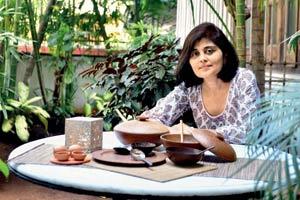
The Maharashtra government could be infamous on its ban for many things, including prized food products and books on Shivaji Maharaj, but the recent ban on plastic is a welcome move. Environment Minister Ramdas Kadam has stated that the use of certain plastic products will invite a fine of Rs 25,000 on individuals, who could also face a three-year jail term. The comprehensive ban includes disposable cups and plates, cutlery and packaging. The city, as it turns out, has several options to replace plastic cutlery with. We sourced out new initiatives, and some tried and tested ones, which point out that sustainable living is not one that is reserved only for the affluent, but for everybody.
ADVERTISEMENT
The goodness of coconut
Bindu Sanghvi, 49, an architect, who previously worked in Sri Lanka, has brought some of the island country's bounty to the Indian shores. At her boutique store, The Aaraliya House, Sanghvi retails her designs, among which are bowls and platters fashioned from the trunk of the coconut tree, and spoons made of coconut shell.
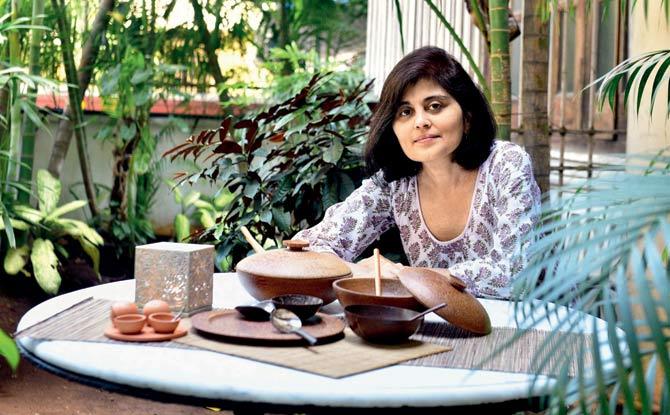
Most of her products are made of natural materials, but this coconut cutlery will catch your eye for its aesthetic value. The bowls are splattered with fine dots, almost like an Impressionist painting, which the wood naturally has. Most of them are uncoated, and the ones that are, have a non-toxic coating, which makes them food-safe.
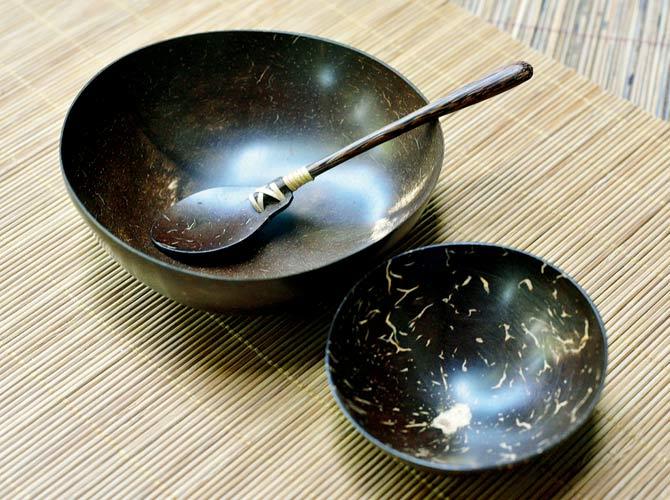
You may find the products on the slightly expensive side, but that's only because Sanghvi gets them made from artisans in Sri Lanka, and there is an import tax to bear.
Where: The Aaraliya House, Girgaum Chowpatty
Call 9820228117
Cost: Small bowl for Rs 200
Handy Tip: Coconut cutlery are not dishwasher-friendly. And, to make durable, line them with a drop of oil after washing them, and place a tissue on them
Say hello to Bagasse
Prabhadevi resident Niyati Thakker's Southern Leaf Co, specialises in supplying a range of disposable products such as plates, trays, forks, spoons and bowls made from bagasse, which is sugarcane fibre waste left after extracting the juice. The abundance of sugarcane in the state, made the idea economically viable, when she launched the venture in 2016.

"Historically, bagasse waste has been burnt in fields, thereby creating a lot of air pollution. We realised that manufacturing eco-friendly products from bagasse not only effectively utilises this by-product, but also helps in reducing pollution, energy and water consumption," says Thakker. While bagasse products decompose within 90 days, plastic can take up to 400 years and styrofoam is known to never degrade.
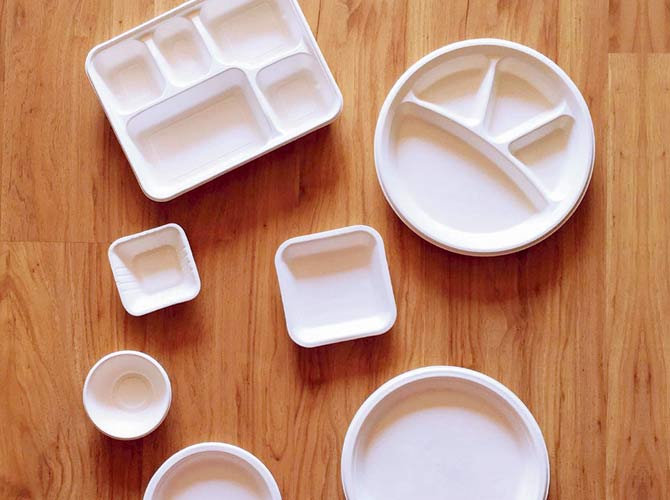
"The biggest challenge for us is to change the mindset of people. When they think eco-friendly, they think it's expensive, and hence, we have kept the rates affordable. Once you start using eco-friendly products, you'll never go back to plastic," she says.
Where: southernleafco.in
Call 9820755972
Cost: Range starts from Rs 200 onward
Handy Tip: It's important to store it in a cool and dry place in order to maintain a long shelf life
Pipe dreams
Paper straws are all good, but what if some crumble under the weight of a lingering smoothie? Try out Juhu resident Rhea Chhabria's straws, made of bamboo and stainless steel, instead. The 26-year-old footwear designer's stainless steel straws come in SS304 (food grade) and SS316 (medical grade), are lead-free, flavour-free and dishwasher-safe. They come in different widths to suit smoothies, juices and shakes.
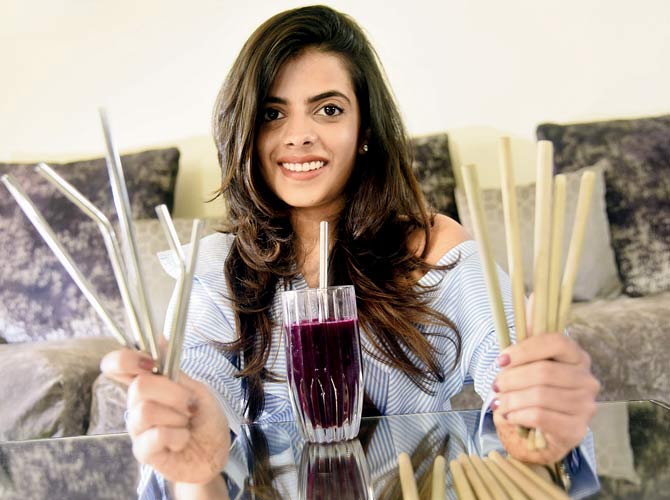
The bamboo versions are made of a species sourced from Assam, a fast-growing variety. This particular bamboo naturally comes in hues, ranging from a pistachio green to beige, in standard 8 mm width. Chhabria, who moved back to Mumbai after working with a footwear brand in New Delhi, has been working various NGOs on waste segregation, and started her venture, Suck In, this January. Suck In delivers the order, at your doorstep.
Where: Suck In, Juhu
Call 9769320031
Cost: Pack of nine bamboo straws with two brushes packed in cotton/jute bag for Rs 400
Handy Tip: If you bite or chew the straw, it may develop cracks. Even so, the straws can be reused 25 times
Conscious till the end
Vasai-based entrepreneur Anu Pillai makes bin liners entirely of corn starch. The liners are compostable, and in aerobic conditions, will turn into compost in six months.
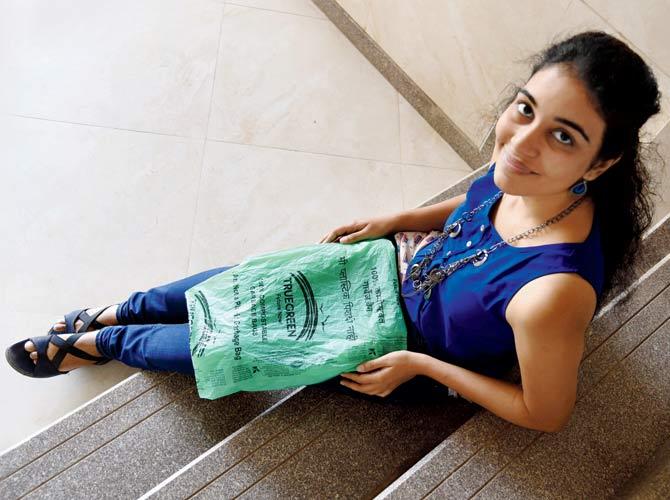
Pillai, who quit her job with a crowd-funding portal to join hands with the civic body on waste segregation, says that she believes that eco-friendly products need not be branded as premium and niche. Her enterprise, Everything Eco, has launched on Facebook this week, and she will deliver rolls of these bin liners to houses every month.
Where: Everything Eco Mumbai page on Facebook
Call 8087180464
Cost: Rs 250 for a roll of 30 liners
Handy Tip: Do not put the liner inside motor driven compost machines as the bags might get stuck in the fan of the machine
Cook with clay
A couple of years ago, Wadala resident Purvee Jain started researching on earthen cookware for her personal use. But, the ones she purchased from the local market would end up cracking on coming in contact with heat. "I've lost count of the number of clay pots I have broken till date," she says.
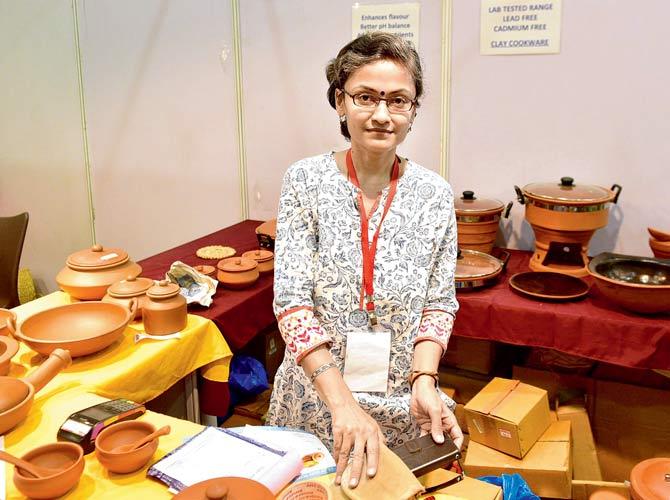
Purvee Jain aims to support local potters through the initiative. Pics/Bipin Kokate
Jain then began researching on the concept and interacted with potters to fashion the pots in a manner that could make them heat resistant. It's during these interactions that the idea to launch clayhotpots.com was born. The portal sells clay-based kulladhs, casseroles, handis, bowls and pans.
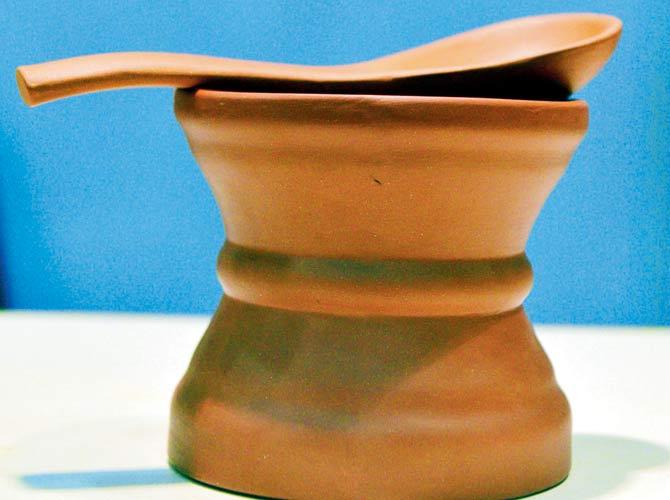
"Clay enhances flavours, maintains pH balance of the food. Also, because it's non-stick, you can cook oil-free meals," she says. The range, which is microwave-able, lead and cadmium-free, starts from Rs 300 and goes up to Rs 3,000.
Where: clayhotpots.com
Call 9821522170 or email at [email protected]
Cost: R650 for six pieces of clay kulladhs
Handy Tip: Because clay is porous, you cannot clean it using dishwashing detergent. Instead, clean it using hot water and a stiff brush.
Baking soda can be used to remove the odours, especially if you have cooked with onion, meat or seafood
Indigenous farm supplies
"Whatever you're putting into earth, is going back into you," says Gayatri Bhatia, owner of Vrindavan Farms in Palghar. A former environmental analyst with the US Environmental Protection Agency in Boston, Bhatia decided to be a farmer in Palghar, a couple of years ago, to manage her family land.

Today, the farm supplies fruits, herbs (superfood moringa) and indigenous vegetables, and spices to city restaurants such as Olive Bar and Kitchen, 212 All Good, Kala Ghoda Café and The Pantry. The packaging for all the produce is entirely crafted out of sustainable material from the farm. "It is inspired by the tribals. When they pack things to take home, it's packed in teak leaves that are large and malleable. The twine comes from banana stems, which is fibrous," she says. The boxes are made of supari leaves grown on the farm.
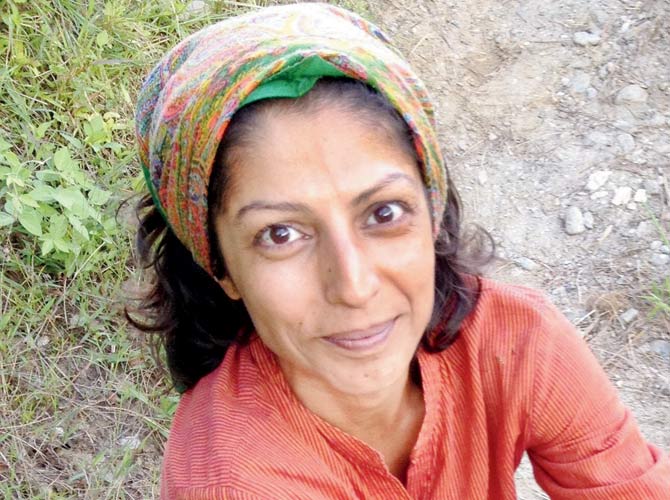
"The leaves can be moulded into salad boxes. We also grow bamboos to weave baskets," she says. Packaging is a long process that takes Bhatia almost a day. It's worth the effort, says Bhatia, who often gets calls from clients gushing about the freshness of the food when packaged in this manner. "We do it because we care. If you see how dirty plastic is, you'd never want it to be near your food," she says.
Where: vrindavanfarm.com
Cost: Price on request
Handy Tip: Sometimes if you keep the package in the fridge, it's hard to tell how much food is remaining, because it's opaque. So, you can transfer the contents into a Tupperware box.
Also Read: Old And New At This Garage Sale
Catch up on all the latest Mumbai news, crime news, current affairs, and also a complete guide on Mumbai from food to things to do and events across the city here. Also download the new mid-day Android and iOS apps to get latest updates
 Subscribe today by clicking the link and stay updated with the latest news!" Click here!
Subscribe today by clicking the link and stay updated with the latest news!" Click here!






